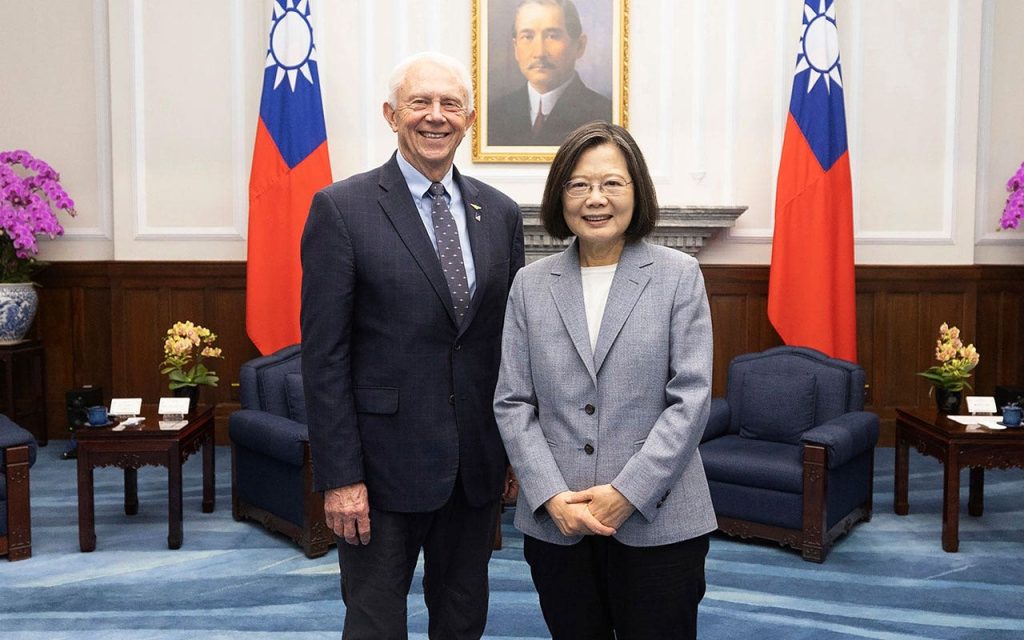A bipartisan U.S. congressional delegation recently pledged continued support for Taiwan following the approval of $300 million in military aid. Despite not officially recognizing Taiwan as a country, Congress views the island as a strategic ally, with Rep. Jack Bergman leading the delegation in emphasizing the importance of the Taiwan-U.S. partnership in regional security. In addition to the military aid, Congress also approved $400 million to counter Chinese influence in the region as part of the Defense Appropriations Act. China considers Taiwan a breakaway province and has been increasing military pressure by sending warships and fighter jets near the island daily.
The United States, in accordance with its laws, is obligated to ensure Taiwan’s ability to defend itself and considers any threats to Taiwan a matter of grave concern. The delegation, led by Rep. Bergman, sought to reassure Taiwan’s leadership of continued support, emphasizing the strategic relationship and the importance of working together to counter Chinese aggression in the region. Taiwanese President Tsai Ing-wen expressed gratitude to the Biden administration and Congress for helping to strengthen Taiwan’s self-defense capabilities, stating that this support will continue to enhance the Taiwan-U.S. partnership.
In response to the U.S. congressional delegation’s visit and the military aid to Taiwan, a Chinese Defense Ministry spokesperson reiterated China’s opposition to U.S. arms sales to what China refers to as its Taiwan region. China demands that the U.S. abide by the one-China principle, refrain from undermining China’s sovereignty, and not interfere in its internal affairs. The U.S. delegation, which includes Democratic Reps. Donald Norcross and Jimmy Panetta, met with Taiwanese Vice President William Lai and President-elect Bi-khim Hsiao, as Taiwan prepares for a new administration to take office on May 20.
China prohibits countries with diplomatic relations from having formal exchanges with Taiwan and has criticized U.S. officials’ visits to the island in the past. A visit by then-House Speaker Nancy Pelosi to Taiwan in 2022 led to China deploying warships and military aircraft around the island, resulting in a freeze on exchanges with the U.S. China and the U.S. have recently restored military-to-military contacts after diplomatic exchanges culminated in a meeting between the two countries’ presidents in San Francisco in November. Taiwan has expressed concerns about China’s military bases near the island but aims to avoid escalating tensions with Beijing.
The bipartisan U.S. congressional delegation’s visit to Taiwan signals continued support for the island in the face of Chinese pressure and aggression. The military aid approved by Congress and the ongoing partnership between Taiwan and the U.S. are crucial in maintaining regional security and countering Chinese influence in the region. Taiwan’s new administration, set to take office on May 20, will continue to work with the U.S. in strengthening its self-defense capabilities and defending against any threats to its sovereignty. Despite China’s objections, Taiwan remains an essential ally to the U.S. in the region.


